If you are in recovery from an eating disorder and following the Australian Healthy Eating Guidelines to a T (Or any other generic guidelines) with the hope that this is enough, that you will gain weight and that you will heal physically and mentally it’s not enough and you won’t.
The recommended dietary intake values (RDIs), dietary reference values (DRVs), nutrient reference values (NRVs), adequate intake values (AIs) or any other combination of acronyms for an amount you “should” be eating you can think of do not apply in recovery from an eating disorder.
Why? Because it’s not their purpose.
The RDIs were designed completely and wholly to be applied at the population level not at the individual level and furthermore they were designed for a population of healthy adults so as an individual in recovery from an eating disorder you’re so far ticking none of those boxes…
On top of this here’s another 4 quick reasons the RDIs are not healthy and do not apply in recovery and why if you continue to follow them you will continue to be let down (through no fault of your own).
The DRVs do not take into account:
- Trauma, Illness or Metabolic Stress
- Your Body’s Ability to Absorb the Nutrients from the Foods You’re Eating
- If You Have Any Other Nutritional Deficiencies
- Your Genetics
As you’ve probably quickly gathered from the above four points there are many contexts in which the “Healthy Eating” guidelines do not apply and not just for those in recovery from eating disorders. In fact, viewed in this light it’s almost more the norm rather than the exception that they wouldn’t apply.
That’s why they are called “guidelines” (and not gospel) because they are a starting point and while in recovery it’s very confusing to feel ashough you are eating so much or what you’re told is the “right” amount and still not improving physically or mentally the reality is it’s not possible to manipulate your body to meet some arbitrary external nutritional guideline. Your body is your body and needs what it needs, it doesn’t give a damn about the RDIs therefore you need to alter and adapt the RDIs to meet your body’s needs and not the other way around.
The only way lasting, long term and meaningful health is created is when it is internally generated. true That is through getting to know your needs and meeting those needs because the best model and the best theory in the world will only ever be just that the best “model” or the best “theory” and not you.
Let’s take a quick look at each of the above 4 key reasons the Australian Healthy Eating Guidelines (or any other healthy eating guidelines) DO NOT APPLY when you are in recovery from an eating disorder and most importantly what to do about it (aka how you can use this knowledge to empower you, take charge and truly begin to change things in your recovery).
1.Trauma, Illness or Metabolic Stress
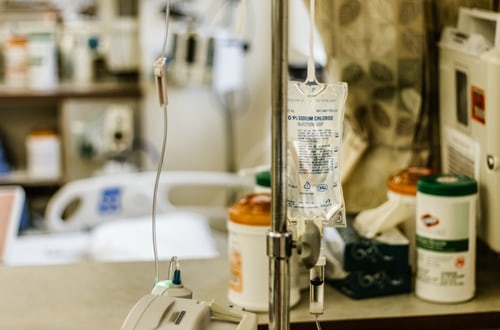
Generic healthy eating guidelines do not take into account trauma, illness or metabolic stress.
Hence, we don’t really need to go beyond this point when addressing why you shouldn’t be following these guidelines. Trauma, illness and metabolic stress all increase your body’s use of and need for food both for the energy (calories) and for the essential micronutrients (vitamins and minerals) within the food.
Just to give one quick example of what I mean here when you are in recovery from anorexia nervosa your body is exceptionally energy inefficient. For your average every day healthy human being about 10% of the calories from the food they eat will go towards digestion and absorption of other foods (this is called the thermic effect of food TEF and if you’re interested to know more about this have a read of my earlier blog “What is Healthy Eating Anyway”). On the other hand, when you are in recovery the amount of energy dedicated to the very same process of digestion and absorption can be 30% or more. That is, it takes you 3 times more energy to digest the same food as your theoretical healthy self.
2. Malabsorption
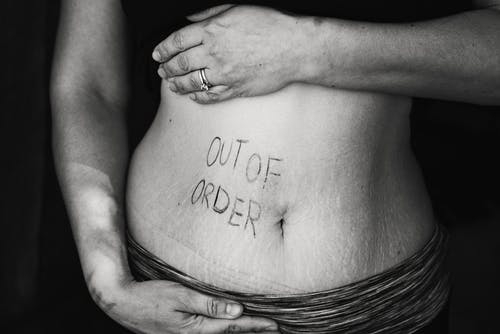
If you are in recovery from an eating disorder your digestive tract has been through the wars (to say the least).
Underuse of your digestive system causes atrophy or the breakdown of the smooth muscle tissue that makes up your stomach, intestines and other components of you gastrointestinal (GI) tract. Add to this the fact that your body needs a certain amount of protein each and every day and if you’re not getting this through food it will have to resort to breaking down the protein within your body. The first protein to be used is that which is non-vital (aka not organs that will result in your immediate death such as your heart, brain or lungs). Your digestive system is non-vital and in any case at this stage your body has no choice because it’s just trying to keep you alive even if by doing so it is hurting you. In short if that precious energy and protein can be better used elsewhere or is needed elsewhere your body isn’t going to prioritize the healthy functioning of your digestive tract.
When the structure and functioning of your digestive tract is compromised, you’re going to have problems digesting and absorbing nutrition from any food you do eat and because the benefits of what you eat are only made manifest when the nutrients within those foods have been released and made available to all the parts of your body clearly malabsorption is a problem. While your healthy, flourishing digestive tract may gain all the nutrients it needs from x amount and type of food in recovery you may only absorb a small portion of the nutrition from the same amount of food. This is especially true if you are experiencing diarrhoea or constipation because these are outward signs of internal problems.
3. Nutritional Deficiencies
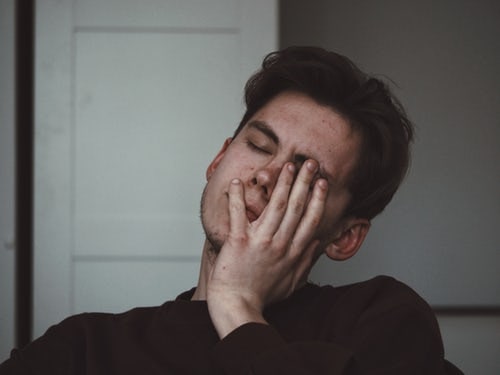
RDIs assume your requirements for all the other essential nutrients are being met and this isn’t the case if you are in recovery from an eating disorder.
If you are lacking in any vitamins or minerals your body’s ability to absorb or even utilise another nutrient will be compromised. This is because we don’t eat nutrients in isolation, we didn’t evolve to eat nutrients in isolation, and they all interact with one another to enhance or decrease absorption of others.
Some nutrients compete for binding sites on the molecules which transport them from our small intestines into our bloodstream which means when we eat them together one of them will be lessened The other side of this is that the absorption of some nutrients is really helped by the presence of another for example vitamin C can increase the absorption of non-haem iron (iron from non-meat sources. If you’re interested to know about this in more detail, see my earlier blog “Nutrient Pairing: How to Get the Most Out of What You Eat”).
Your body’s ability to actually use this or that particular nutrient can be dependent upon your stores of and the presence of other nutrients. For example in order for your body to absorb vitamin B12 (necessary for red blood cell production and nervous system function among other things) relies upon calcium availability i.e. your body can only absorb the B12 it needs when you also have sufficient calcium.
As a human you’re made to eat a wide variety of nutrients daily and if you are not eating enough of any of the essential vitamins and minerals or have previously not been for a period of time (even if your needs are now theoretically being met) your body has catch up to do before it can use them as it should be. This is why some nutritional deficiencies do require supplementation or injections to bring your levels back up to normal and from there you can work on meeting your needs through foods.
4. Your Genetics

Your genetics influence every part of your life and your nutritional needs are no exception.
Some people have very obvious genetic variations for example there is a genetic error of metabolism that results in people having a decreased ability to metabolise one of the amino acids (phenylalanine). This condition is called phenylketonuria (PKU) and requires a strict diet with limited protein for life because otherwise it can lead to brain damage, intellectual disabilities behavioural problems and seizures. This is a dramatic example to highlight how your genes affect your nutritional needs (and if you have PKU you’d know by so now don’t worry) but at a less dramatic level you definitely have a unique need for nutrition different to anyone and everyone else on this planet.
Some people have genetically higher requirements for calcium, iron or vitamin A for example than others so living under the same conditions and eating the exact same diet one person will be meeting their needs and the other won’t be. For more information on how your genes affect your nutritional needs have a read of my earlier post “A Simple Guide to Nutrigenetics and Nutrigenomics”.
In the specific case of anorexia nervosa there is evidence that there are metabolic differences in metabolism that make people more highly susceptible to developing anorexia when they are exposed to an energy (calorie) deficit (aka not eating enough food to meet their energy requirements). This can complicate recovery because it means your body is genetically predisposed to stay in the illness until there is a calorie surplus and eating to the Australian Dietary Guidelines will never allow your body to register this surplus (for more information on this and how you can use this fact to help you in your recovery see my earlier post “Anorexia Is Genetic, So What?”).
Take Home Truths About Eating to Recover

After all that detail explaining why the RDIs don’t apply in recovery it basically comes down to one thing and that is being in recovery from an eating disorder falls outside of the criteria they were designed for use in. It truly doesn’t have to be any more complicated than that.
Therefore, if you’re following the RDIs to a T or you don’t understand how you can be “eating so much” and still not recovering the above 4 (very important) things the RDIs do not take into account may be one component as to why. The RDIs also don’t factor in that for your body to even begin to make physical repair takes far above what is needed for maintenance. Maybe after you repair those RDIs will be spot on but for repair and healing they aren’t.
The other unavoidable and probably most important fact about recovery from an eating disorder is that while eating is undeniably and unavoidably a part of recovery there is also no recovery without recognising the reality that eating in and of itself will not cure you.
You can eat “perfectly” and still not recover because recovery takes neural rewiring, learning, growing and advancing. All of which are made possible through nutritional replenishment but still require work and effort because full recovery is about more than changing behaviours it is about becoming you.
The best nutrition advice I could ever give having gone through recovery and now facilitating others through their own recovery on a daily basis is to let go of the need to meet any guideline, plan or other of what you “should” be eating. Have a dietitian help you create a baseline plan but know that this is a baseline and there is no such thing as eating “too much”.
It’s hard at first, so hard that I have no words to explain how hard because you don’t trust yourself and you don’t understand how you could possibly need to eat “so much” but it is the quickest way to recover and the quickest way to recover is the best way to recover! I hear you if you could do this you’d be doing right!? and that’s true because the what to do is only part of recovery the biggest part is the “how to” do it.
Many people will tell you what to do far fewer people will be able to truly help you with the how to do it.
I believe that is because the how to do it is unique to you, the how to do it is within you or at least can be developed within you. Which is why I would always and without exception advise you to seek professional help to recover. However, that professional help must be help that can help you connect to you, not “help” that dictates what you “should” be doing because the how to do it is yours alone. When you get that and when you can trust and act on that you will be free, you will be unstoppable.
I wish I’d received this information when I was a 14 year old kid trying to be perfect and following every piece of “professional” advice, I wish I knew this when I was a 26 year old woman unable to say no and trying desperately to please everyone, just relentlessly trying to do what they said was best when in my heart I knew it wasn’t.
If you are in recovery from an eating disorder, please seek great help because the eating disorder is not, has never been and will never be the most interesting thing about you. You are so much more and it’s time to experience just how much you can thrive (and how much you can fail) as you.
With my whole heart I hope you found this information useful and inspiring
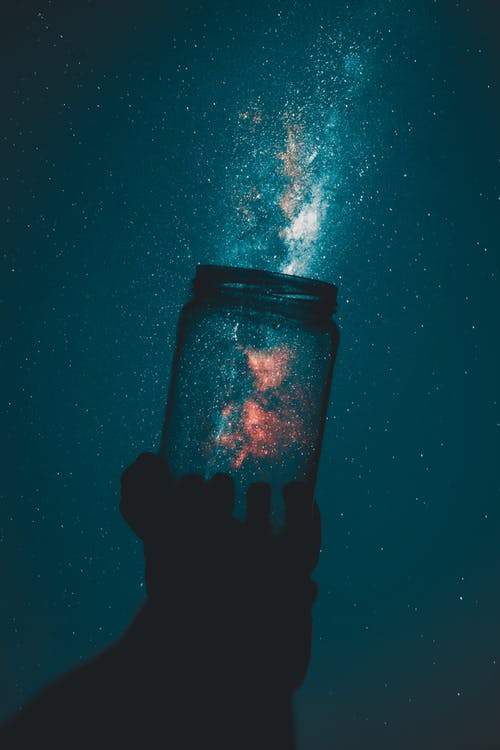
Become Great. Live Great.
Bonnie.
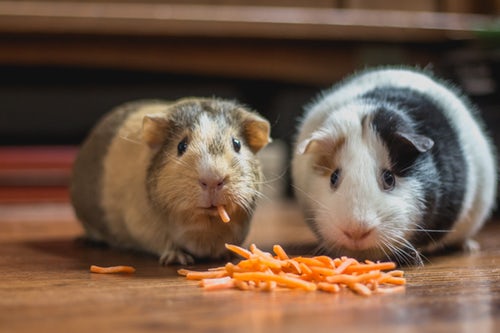



2 thoughts on “Why the Recommended Dietary Intakes (RDIs) Don’t Apply in Recovery”
I could not refrain from commenting. Perfectly written!
Well Rolland I am happy you didn’t refrain from commenting because your comment is wonderful and it is always so nice to know when my blogs are reaching the people they need to. Thank you for taking the time to let me know you found my work perfectly written and useful.